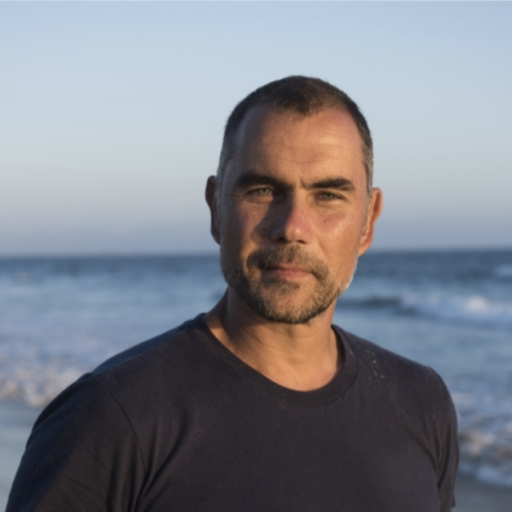
Marcus Eriksen
Marcus Eriksen is the co-founder and Researcher at 5 Gyres as well as the co-founder of Leap Lab. Throughout his career, he has studied the global distribution and ecological impacts of plastic marine pollution. This has included expeditions sailing through all 5 subtropical gyres, Bay of Bengal, Southern Ocean and inland lakes and rivers, and recently publishing the first global estimate of all plastic of all sizes floating in the world’s oceans, totaling 270,000 metric tons from 5.25 trillion particles. In 2013 he and colleagues published the discovery of microbeads in the Great Lakes, which became the cornerstone for a US-based campaign to eliminate plastic microbeads from cosmetics, resulting in the Microbead-Free Waters Act, which became US federal law in 2015. Years earlier, in 2000, he traveled to Midway Atoll, finding hundreds of Laysan Albatross with plastic pouring out of their stomachs, and that experience narrowed his focus to plastics. He received his Ph.D. in Science Education from University of Southern California in 2003, months before embarking on a 2000-mile, 5-month journey down the Mississippi River on a homemade raft of plastic bottles to bring attention to this issue. Again in 2008, he rafted across the Pacific Ocean from California to Hawaii on JUNK, floating on 15,000 plastic bottles and a Cessina airplane fuselage as a cabin. The journey, 2,600 miles in 88 days, brought attention to the work of the 5 Gyres Institute, the organization he co-founded with his wife, Anna Cummins. He has written two books, My River Home in 2007 and JUNK RAFT in 2017, and published and/or contributed to over 21 papers about the effect of plastic on our environment. The experience of war, sailing across oceans with wonderful crew-mates, and long rafting voyages, have led to a strong conservation ethic worth fighting for. “We must understand and define conservation and social justice as our collective self-preservation – a rationale that crosses all boundaries between all people.”
Sessions
Track: Catalyzing Innovation and Regenerative Design
Fibers are the foundation of countless products—and a major lever for materials transformation in the garment industry, household items manufacturing, and more. As the textiles industry faces growing pressure to mitigate waste,... see more
Track: Transforming Materials and Supply Chains
As food brands race to reduce waste and meet consumer and regulatory demand for sustainable solutions, packaging has emerged as both a critical challenge and an exciting frontier for innovation. This session... see more